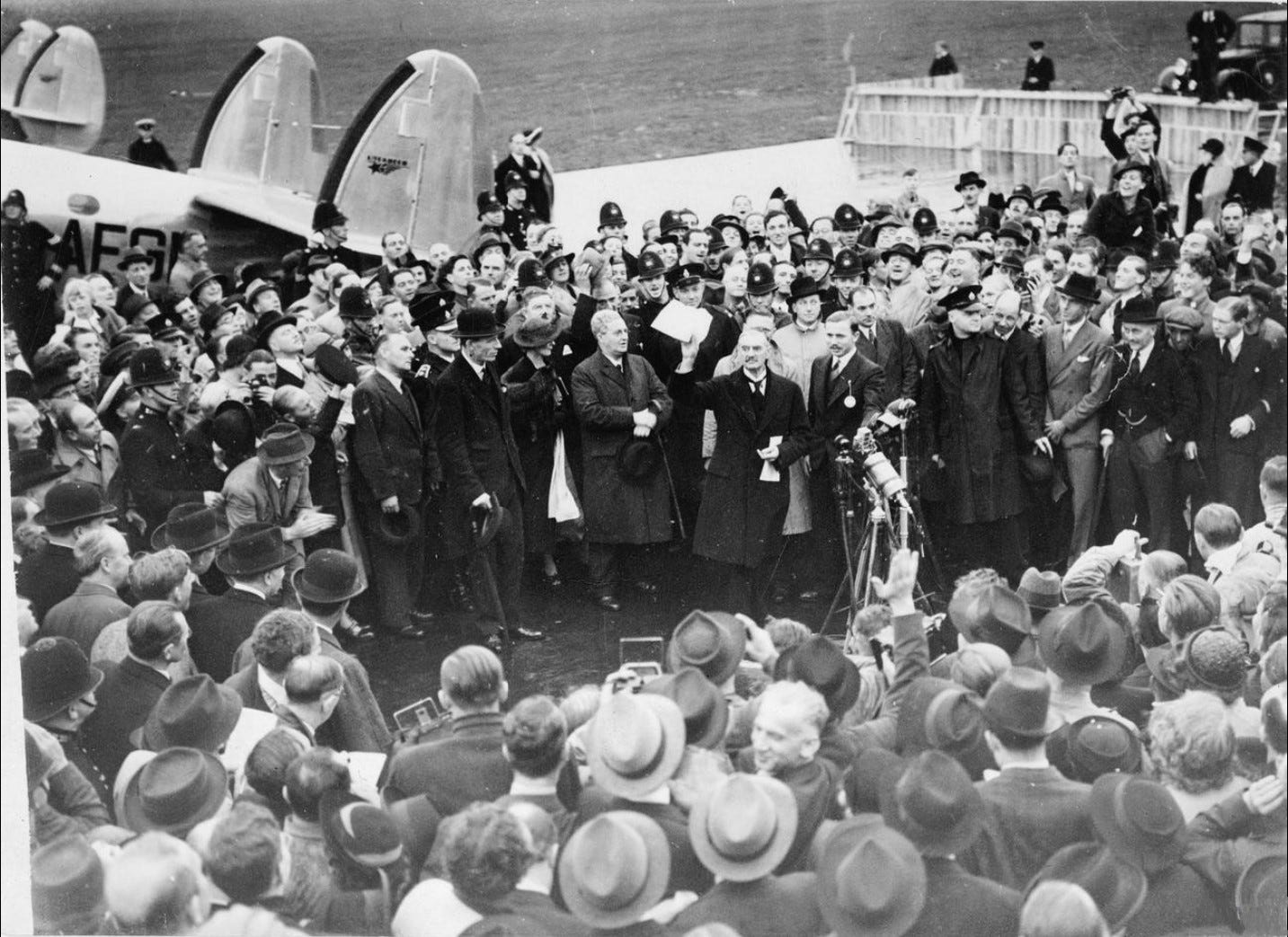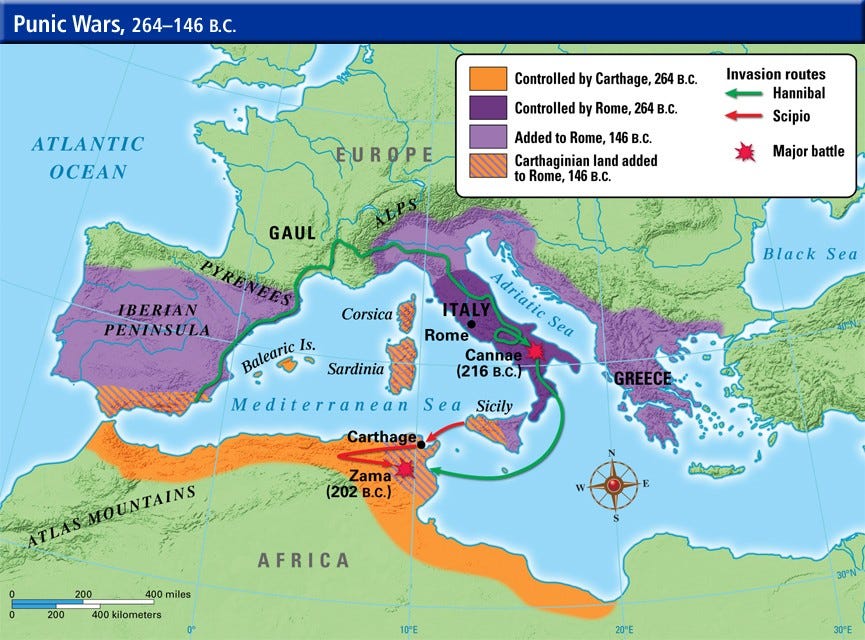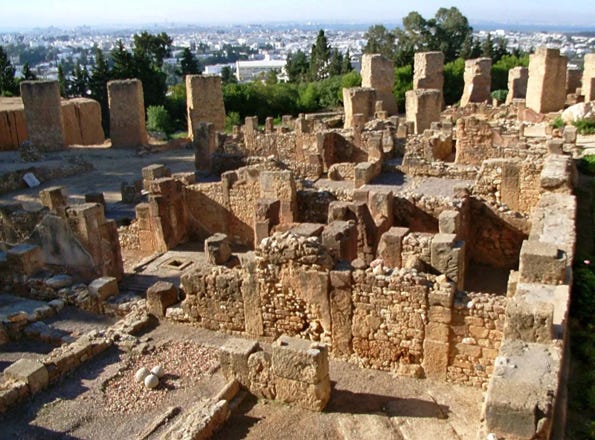A Rooten Peace Will Prolong The War
Lesson 3
Lesson 3: A Rotten Peace Will Prolong the War
My third thesis is this: a rotten peace can prolong the war. At the heart of this lies the problem of asymmetrical willingness to make concessions.
The Hawks in Rome Couldn’t Be Appeased
History offers many examples, but one of the clearest comes from antiquity: the wars between the expanding Roman Empire and Carthage.
During these conflicts – most famously remembered through Hannibal’s crossing of the Alps – the political and military elites of Carthage chose to make far-reaching concessions to Rome.
Their reasoning was simple: by giving ground, Rome would recognize that Carthage no longer intended to continue fighting. Yet the exact opposite happened. In the Roman Senate, concessions were not read as a sign of peace but as a mark of weakness, even encouragement to the aggressor (Rome).
The hawks within the Senate argued: if such concessions are already being offered, why should we not push for one, two, or three more steps? The result of Carthage’s attempt to appease Rome was a deadly spiral: Carthage surrendered territories, gave up land, handed over weapons, and even demilitarized itself — but the war continued unabated.
Finally, Carthage was forced to send an entire generation of young men as hostages to Sicily. Still, the conflict raged on. Its conclusion was brutal: the total destruction of Carthage at the hands of Rome.





